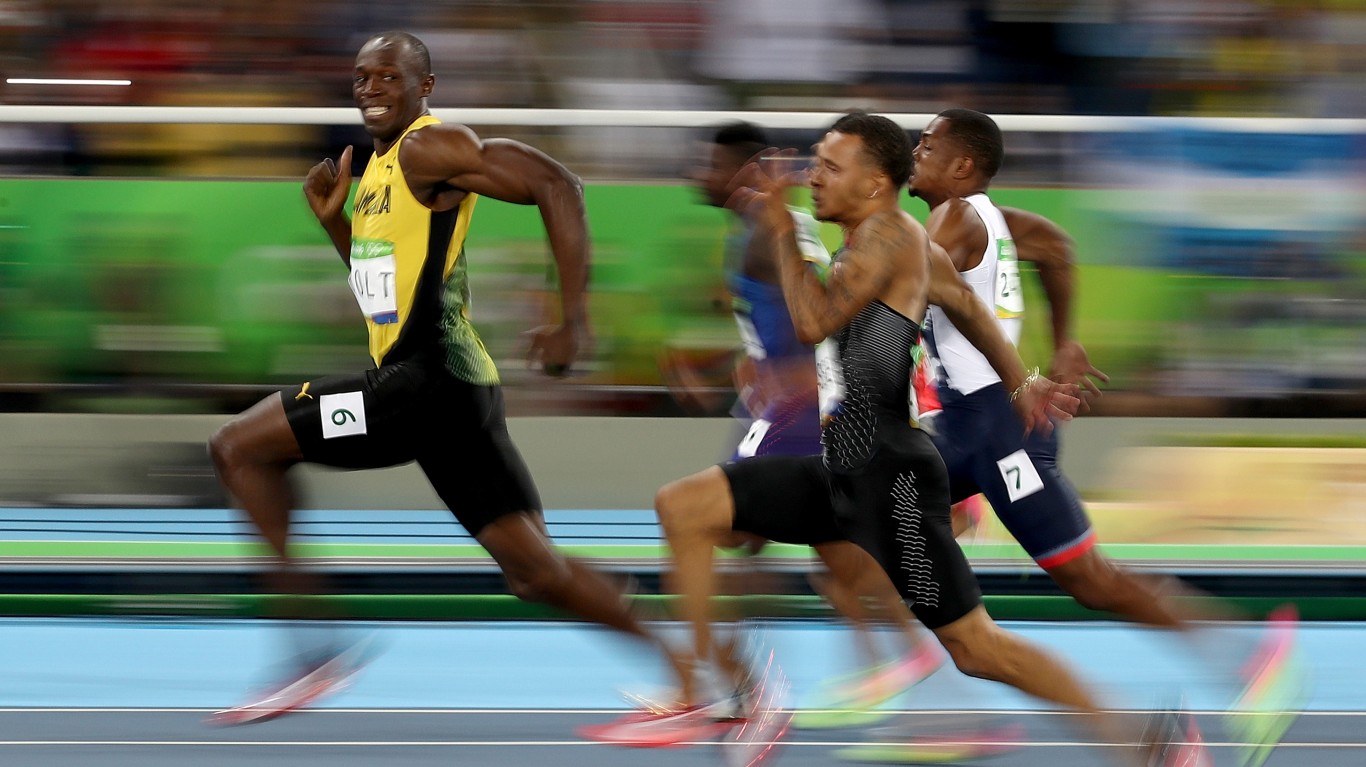
“Fast” insofar as humans are concerned, can be measured based on time over several traditional distances. The leading marathon runners can finish a course in just over two hours. The sub-four-minute mile has been the measure for that distance for several decades.
[in-text-ad]
The four-minute mile was one of the central races at track and field events. For centuries, many experts on human speed said it could not be broken. Several runners claim to have done so. James Parrot claimed to break a four-minute mile in London in 1770. His claim was never accepted.
The first officially recognized four-minute mile was run by Roger Banister on May 6, 1954.
Many people who want to determine what the reasonable claim to “fastest human” say the pace should be measured over a shorter distance. The 5,000-meter and 10,000-meter distances are part of the official Olympic races. So are 800 and 1,500 meters. Any of these could be used.
However, the gold standard of human speed has become the 100-meter race. The race goes by in a flash. The lowest times over this distance are all under 10 seconds.
Based on this measure, the fastest human in history is Usain Bolt. He ran 100 meters in 9.58 seconds at the 2009 IAAF World Championships. It is unusual for a global running record to be the standard for this long. Bolt’s time means he averaged 23.4 miles per hour. While impressive, it is below the minimum car speed limit on the slowest roads.
Bolt was born on August 21, 1986, in Jamaica. He won eight Olympic Gold Medals in the 2008, 2010 and 2012 games. He also held the 200-meter record twice. Bolt made Time’s list of the 100 Most Influential People in 2016 and retired the next year.
The Average American Has No Idea How Much Money You Can Make Today (Sponsor)
The last few years made people forget how much banks and CD’s can pay. Meanwhile, interest rates have spiked and many can afford to pay you much more, but most are keeping yields low and hoping you won’t notice.
But there is good news. To win qualified customers, some accounts are paying almost 10x the national average! That’s an incredible way to keep your money safe and earn more at the same time. Our top pick for high yield savings accounts includes other benefits as well. You can earn up to 3.80% with a Checking & Savings Account today Sign up and get up to $300 with direct deposit. No account fees. FDIC Insured.
Click here to see how much more you could be earning on your savings today. It takes just a few minutes to open an account to make your money work for you.
Our top pick for high yield savings accounts includes other benefits as well. You can earn up to 4.00% with a Checking & Savings Account from Sofi. Sign up and get up to $300 with direct deposit. No account fees. FDIC Insured.
Thank you for reading! Have some feedback for us?
Contact the 24/7 Wall St. editorial team.




